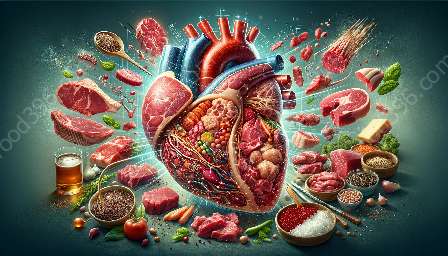The dietary guidelines for meat consumption are a crucial aspect of maintaining a balanced and healthy diet. Understanding the nutritional benefits and scientific aspects of meat can help individuals make informed choices about their meat intake.
The Importance of Meat in the Diet
Meat is a valuable source of essential nutrients, including protein, iron, zinc, and vitamin B12. These nutrients play vital roles in maintaining overall health and well-being.
Protein is necessary for building and repairing tissues, while iron is essential for oxygen transport in the body. Zinc supports immune function and wound healing, and vitamin B12 is crucial for nerve function and DNA synthesis.
Additionally, meat contains complete proteins, which means it provides all the essential amino acids that the body cannot produce on its own. This makes meat an important component of a balanced diet.
Dietary Guidelines and Recommendations
The dietary guidelines for meat consumption may vary based on individual needs, preferences, and health conditions. However, several general recommendations can help guide individuals in making informed decisions about their meat intake:
- Choose Lean Cuts: Opt for lean cuts of meat to reduce saturated fat intake. Lean meats, such as skinless poultry, lean beef, and pork, offer the same essential nutrients with lower fat content.
- Control Portion Sizes: Moderation is key when it comes to meat consumption. Controlling portion sizes can help individuals manage their caloric intake and prevent excessive consumption of certain nutrients, such as saturated fat and cholesterol.
- Diversify Protein Sources: In addition to meat, individuals can incorporate other protein sources, such as fish, legumes, nuts, and seeds, to ensure a varied nutrient intake and minimize potential health risks associated with excessive meat consumption.
Understanding Meat Nutrition
Meat nutrition involves a detailed analysis of the nutrient composition of different types of meat. Understanding the nutritional content of various meats can help individuals make informed choices based on their dietary needs and health goals.
Protein Content
Meat is a rich source of high-quality protein, which is essential for supporting muscle growth and repair. Different types of meat vary in their protein content, with options such as chicken breast, turkey, and lean cuts of beef offering significant protein content per serving.
Fat Profile
The fat content of meat can vary depending on the cut and type of animal. By choosing lean cuts and incorporating healthier cooking methods, individuals can optimize their fat intake and minimize the consumption of unhealthy saturated fats.
Vitamins and Minerals
Meat is a notable source of essential vitamins and minerals, including iron, zinc, selenium, and various B vitamins. These nutrients play diverse roles in supporting overall health, from energy metabolism to immune function.
Meat Science and Nutritional Research
Meat science encompasses various fields, including food technology, animal nutrition, and meat processing. Ongoing research in meat science aims to improve the nutritional quality of meat products, enhance safety measures, and explore sustainable practices in meat production.
Nutritional research related to meat consumption includes studies on the impact of different types of meat on health outcomes, the role of meat in preventing nutrient deficiencies, and the effects of varying cooking methods on the nutrient content of meat.
By staying informed about the latest advancements in meat science and nutritional research, individuals can make educated decisions about their meat consumption and optimize their dietary habits for long-term health and well-being.

